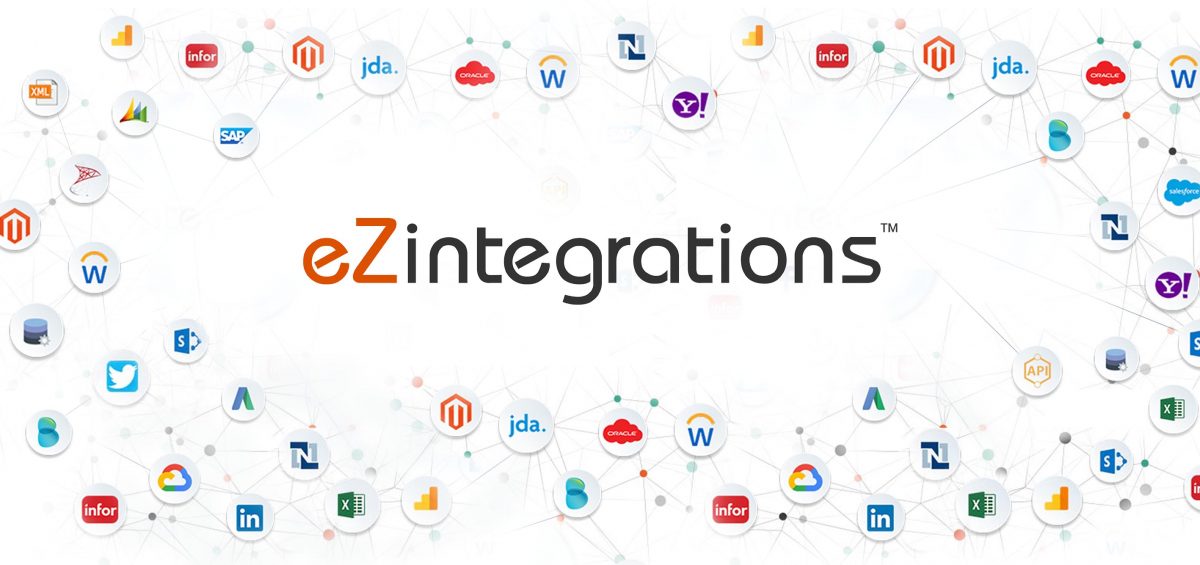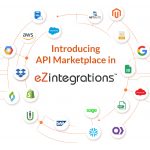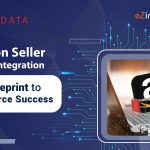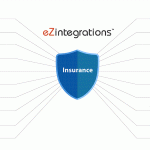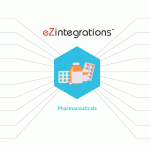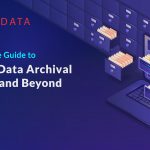Integrating your data – between multiple clouds, or from on-prem legacy systems to cloud? Connect applications, devices, people, and data with iPaaS for faster time to value.
Businesses are operating in a hybrid, multi-cloud world, using more than three cloud tools to solve problems. These applications are fragmented across different environments. When we bring two applications together and start passing data, we start experiencing inconsistencies. Sales team data and applications may not be consistent with the service team. How do we then connect various departments and processes to share data? We are living in an era of datafication and these connection bottlenecks can very well challenge business agility.
Currently, you may have in place a combination of SaaS (such as Salesforce), PaaS, or IaaS environments. The problem is with disjointed data ecosystem. One may need data from other application – CRM, ERP systems, financial platforms, HRIS, external locations, and so on – to perform optimally. iPaaS helps simplify your overall system by creating a virtual platform that brings together all your applications and data and cord them in a consistent structure.
Integration Platform as a Service (iPaaS), is a cloud-based solution delivered as a software service, that manages, develops and integrates data and applications from on-premises legacy systems and cloud to a single trusted system.
Evolution: Bringing a ‘Connector Mindset’ home
Integration isn’t new. It has been around for a while.
Earlier integration was about connecting application to application.
Next-gen iPaaS has grown into a broader integration platform. Synchronizing data between on-premises ERP system to cloud or SaaS, and in-between clouds. It is transcending boundaries to adopt new trends – microservices based architecture, API integration, and cloud – to connect not only applications but also data, people, and devices with maximum flexibility and scalability.
Not many years before, it was thought that cloud was the requiem for Extract-Transform-Load (ETL) and data integration. It’s certain now that data integration or ETL isn’t dead. In fact, it has become more complex and important in a world full of disparate and discreet data sources, diverse applications, and multiple clouds uses.
Hybrid, multi-cloud and data-driven organizations are taking new form to evolve a connector mindset. They are looking to scale, store, and analyze data, without losing its value irrespective of the source, device type and location. Next-gen iPaaS is thus becoming a hotspace.
Next-Gen iPaaS: Beyond data integration
iPaaS is a cloud-friendly alternative to traditional data integration. Foundational to hybrid integration and digital transformation, it is much more than the ability to move the data around.
Data reliability and privacy are huge challenges for integration.
Applications are becoming more and more disposable, but data persists. It augurs important challenges that next-gen iPaaS aims to address.
iPaaS needs to make sure the data remains safe, secure, trusted and robust. The resulting system needs to be strong, swift and efficient. The challenges for iPaaS are three-pronged: Data quality, Data governance and Data security.
Metadata is the data about data. It’s central to data quality. As data spread to discrete locations, environments and systems, and new data types emerge, integration capabilities will need to be encompassing and vigorous.
Then, data isn’t the exclusive playground of IT and developers anymore. In the past only a few developers wanted to work with data, now a whole new set of users are cutting in. Business users are also clamoring for data. Integration systems need to be able to expand to non- technical users: citizen integrators, data scientists, business users, and more for business success. As you communalize the use of data, it gives rise to other two challenges – data security and data governance.
If data is the new oil, secure data transfer within and outside the organization is pertinent to maintain a competitive advantage. Then again, how do you share information with partners the organization?
iPaaS offers master data management, partner integration and EDI management that opens up a secure B2B gateway for exchange of data and messages between partners, departments, and even shadow IT.
Use cases: When do you need an iPaaS?
iPaaS lets you move information in and around different environments, devices, and sources irrespective of the geographical location. But, how do you know that you need such frictionless integration of data and applications? Here are a few signs.
You use multiple clouds and on-prem apps or services, but they are not integrated.
Integrated applications and data are the forte of iPaaS. If your projects are bringing in cloud platforms or applications like Salesforce and SAP, and you are looking for quick integration, it’s hard to argue with the value of iPaaS. Manual configuration is time consuming and tiresome. iPaaS can offer universal translation capabilities and support for a variety of data formats, and enterprise integrations – B2B and EDI, among others.
You are undertaking cloud migration.
Moving to cloud is not just about moving data centers, but also redesigning data warehouses and data lakes for better analytics. The structural support of makes integration easier and brings in centralized data management to public clouds that can lend businesses the agility with reduced time and resource investment.
The disconnect between technologies is negatively impacting your customer experience.
Customers’ expectations are touching sky-high. Those unable to deliver risk losing to competitors. Fragmented, slow and inconsistent services are often the impetus for organizations to implement iPaaS for faster time to value and greater customer satisfaction.
You are spending too much time and resources on manual integrations.
Budgets are always the problem. You may not realize it and think that you are getting by without iPaaS, but your tech team might be under a lot of pressure. Manually integrating data and applications between platforms is time-taking, painstaking and inefficient. iPaaS by automating most of these processes frees up the time of your resources and also the finances tied up with manual integration.
Secondly, organizations are vying for more agility in business processes. If you want to bring in people other than your core IT and development team into data management for self-service analytics, iPaaS offers GUI and other drag-and-drop solutions that make it easier for business users to integrate data and manage it without the requisite of a hardcore coding background. Inclusion of larger workforce closer to data management can make processes efficient, and truly data-driven.
You are scaling quickly and that’s spurring issues that may hinder your growth.
Growing too quickly comes with a price. You have to keep up with the pace and maintain the quality of your offerings. iPaaS can handle rapidly increasing demands by lending architecture that can support any integration pattern – even behind a firewall or private cloud with speed, ease and efficiency.
Your data comes from different sources, which are difficult to wrangle.
With the explosion of big data, the data management challenge has become ever more magnanimous. As you live with various data formats, applications and sources, its difficult to find what you need on time. iPaaS makes data wrangling much easier.
If you are thinking of whether or not to adopt integration, we suggest – start small. Find an integration problem and solve that. As you gain clarity, comfort, and familiarity with iPaaS, go beyond table stakes.

